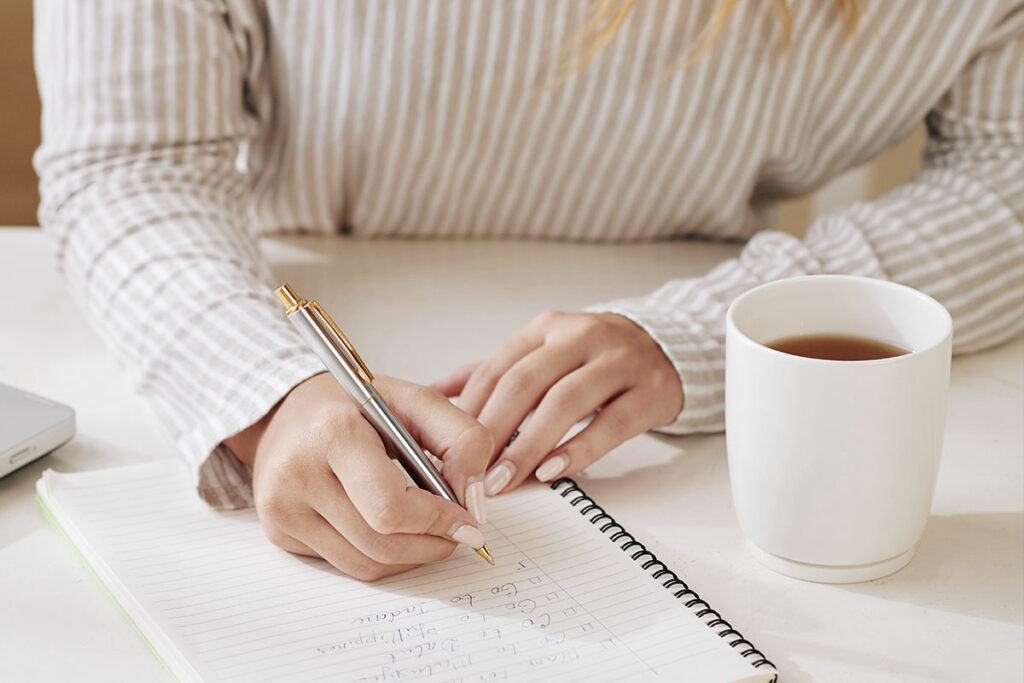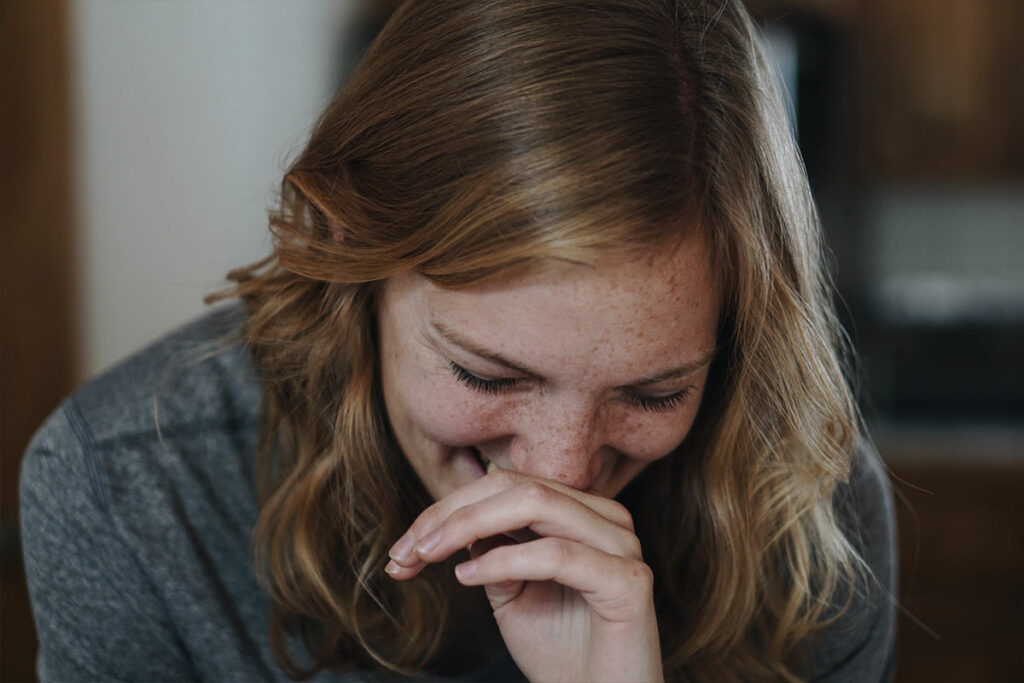Ancient Chinese medicine describes an energy force called Qi that regulates the body’s overall health. Like blood in the circulatory system, Qi moves throughout the body via pathways called meridians. When factors like injury, stress, poor nutrition, or a change in environment disrupt the flow of Qi, health issues follow. By inserting needles at specific points in the body, acupuncturists restore the balance of Qi and the body’s overall health,
Acupuncture and Anxiety
Acupuncture is a treatment based on Traditional Chinese Medicine (TCM) that involves needling of specific sites on the body called Acupoints. Stimulation of these areas enhances the body’s natural healing mechanisms and can have a wide range of physical and mental benefits for the patient. For example, acupuncture encourages the release of neurotransmitters like Serotonin (which regulates your mood and sleep) and Endorphins (which are the body’s natural painkiller, and also help to boost your mood). Both of these are extremely important tools in managing the symptoms of GAD (Generalised Anxiety Disorder) and other anxiety-based disorders
In acupuncture, anxiety is seen as a balance between the Heart and the Kidney, so generally the treatment seeks to bring those two elements back into harmony within the body. Every diagnosis is different because every individual has their own unique needs, but generally patients respond well to receiving acupuncture treatments on a weekly or twice-weekly basis for a period of up to 6 weeks or longer depending on how your body responds. You can speak with your acupuncturist to develop a plan that works best for you. Acupuncture is about balance, and as health is so much more than just the absence of illness, acupuncture works to bring balance into the whole body, through balancing the mind, body, spirit. So a trained Acupuncturist will look at your diet, your exercise routine, how you relax, how you are feeling mentally and emotionally, and spiritually. Through a series of questions, using the tongue as a diagnostic tool and feeling the pulses, your Acupuncturist will decide which organs and meridians are out of balance and design a treatment plan to bring everything back into balance.
Anxiety is the most common mental health condition in Australia, with 25% (over 2 million people) of the general population being affected i . Though everyone experiences anxiety as a response to stress at one point or another during their lives, with chronic anxiety (often called Generalized Anxiety Disorder or GAD) the patient experiences a near constant level of stress that is often irrational and unrelated to external triggers. Other forms of anxiety disorder can manifest as Panic Disorder, which involves sudden and repeated attacks of intense fear, and Social Anxiety Disorder, which produces a high level of fear and stress in any social situation. People suffering from chronic anxiety can experience restlessness, chronic fatigue, insomnia, irritability, muscle tension, and cognitive difficulties ii .
If you believe that acupuncture is an option to help treat your chronic anxiety, speak with your acupuncturist today to discuss your options and develop a customized treatment plan.
Others suggestions to help deal with Anxiety:-
Nourish your Gut through the right diet and acknowledging the effect of what you eat. The saying “You are what you eat is so true”, but know we know through research that the effect of what you eat also effects how you think and feel. The link between the vagus nerve and the gut/brain connection, has a huge effect on anxiety. So correcting your diet will impact your healing immensely.
Exercise has wonderful healing benefits for the mind/body. The release of mood-regulating neurotransmitters, including serotonin and dopamine rises with exposure to sunlight, and Vitamin D production – low vitamin D levels have been associated with increased risk of panic disorders.
Exercise and anxiety
Exercise is a natural and effective anti-anxiety treatment. It relieves tension and stress, boosts physical and mental energy, and enhances well-being through the release of endorphins. Anything that gets you moving can help, but you’ll get a bigger benefit if you pay attention instead of zoning out.
Try to notice the sensation of your feet hitting the ground, for example, or the rhythm of your breathing, or the feeling of the wind on your skin. By adding this mindfulness element—really focusing on your body and how it feels as you exercise—you’ll not only improve your physical condition faster, but you may also be able to interrupt the flow of constant worries running through your head.
Exercise is a powerful anxiety/depression fighter for several reasons. Most importantly, it promotes all kinds of changes in the brain, including neural growth, reduced inflammation, and new activity patterns that promote feelings of calm and well-being. It also releases endorphins, powerful chemicals in your brain that energize your spirits and make you feel good. Finally, exercise can also serve as a distraction, allowing you to find some quiet time to break out of the cycle of negative thoughts that feed anxiety/depression.
Ever noticed how your body feels when you’re under stress? Your muscles may be tense, especially in your face, neck, and shoulders, leaving you with back or neck pain, or painful headaches. You may feel a tightness in your chest, a pounding pulse, or muscle cramps. You may also experience problems such as insomnia, heartburn, stomach ache, diarrohea, or frequent urination. The worry and discomfort of all these physical symptoms can in turn lead to even more stress, creating a vicious cycle between your mind and body.
Exercising is an effective way to break this cycle. As well as releasing endorphins in the brain, physical activity helps to relax the muscles and relieve tension in the body. Since the body and mind are so closely linked, when your body feels better so, too, will your mind.
ESSENTIAL OILS FOR ANXIETY & STRESS – applying oils topically or using them in a diffuser can have a powerful effect on calming the mind and bringing in a sense of peace and stillness in the mind.
Guided meditations – phone APP – Insight timer – encouraging mindfulness, placing an intention for the day, practising gratitude, creating abundance – all positive thoughts and energy to help keep you on track.
Breathing technique – 4-7-8 – breathing calms the mind , lowers heart rate, increase circulation.
Tapping – E.F.T. with positive affirmations.
Qigong practice – move the qi.
Hi, my name is Annette I am an Acupuncturist among other things. I am devoted to improving quality of life for people and helping them to gain a better understanding of how to live a balanced happy, healthy, pain free life. I am passionate about food, exercise, meditation, yoga and having fun. I love a good laugh with friends, as well as a good cry at a sad movie, (as long as it has a happy ending). If we can all be the very best form of ourselves, what a happy world we would live in. I enjoy stand up paddle boarding at daybreak on the river. I cook to relax and love nothing better than a good dinner party. I attend bikram yoga classes on a regular basis, I love the intensity of the practice as well as the discipline.
The Major Contributor to Anxiety That Hardly Anyone Knows
Increasingly, scientific evidence shows that nourishing your gut flora with the friendly bacteria known as probiotics is extremely important for proper brain function, and that includes psychological well-being and mood control. It may sound odd that bacteria in your gut could impact emotions such as anxiety, but that is exactly what the research bears testimony to. The probiotic known as Bifidobacterium longum NCC3001, for instance, has been shown to normalize anxiety-like behavior in mice with infectious colitis.4
In a very real sense, you have two brains, one inside your skull and one in your gut (the so-called “enteric nervous system”), and each needs its own vital nourishment. Your gut and brain actually work in tandem, each influencing the other. This is why your intestinal health can have such a profound influence on your mental health, and vice versa; as well as the reason why your diet is so closely linked to your mental health.
Prior research has also shown that the probiotic Lactobacillus rhamnosus had a marked effect on GABA (an inhibitory neurotransmitter that is significantly involved in regulating many physiological and psychological processes) levels in certain brain regions and lowered the stress-induced hormone corticosterone, resulting in reduced anxiety- and depression-related behavior.5
So optimizing your gut flora with beneficial bacteria is a highly useful strategy. This is done by eliminating sugars and processed foods and eating plenty of non-starchy vegetables, avoiding processed vegetable oils, and using healthful fats. Additionally, using plenty of fermented vegetables or a high-potency probiotic would be useful to reestablish a healthy gut flora.
Your Diet Plays an Important Role in Your Mental Health
If you suffer from anxiety, it would be wise to look into nourishing your gut flora, and the best way to do this is to regularly consume traditionally fermented foods, which are naturally rich in beneficial bacteria. Pasteurized versions will NOT have the same benefits, as the pasteurization process destroys many, if not all of the naturally-occurring probiotics. So you will need to seek out traditionally fermented, unpasteurized foods like fermented vegetables, or make them yourself.
If you do not eat these types of foods regularly, then a high-quality probiotic supplement can help fill in the gap and give your gut the healthy bacteria it needs. This is the first part of the equation. The second part of the equation to optimizing your gut flora lies in avoiding the many factors that can throw your bacteria equilibrium way off balance, such as eating sugar, refined grains and other processed foods or taking antibiotics.
Additionally, your diet should include a high-quality source of animal-based omega-3 fats, like krill oil. The omega-3 fats EPA and DHA play an important role in your emotional well-being, and research has shown a dramatic 20 percent reduction in anxiety among med students taking omega-3s.6
Exercise Is Frequently Helpful if You Have Anxiety
Some psychologists swear by exercise as a primary form of treatment for depression, anxiety, and other mood disorders. Research has shown again and again that patients who follow regular exercise regimens see improvement in their mood — improvements comparable to that of those treated with medication.
The results really are impressive when you consider that exercise is virtually free and can provide you with numerous other health benefits, too. The benefits to your mood occur whether the exercise is voluntary or forced, so even if you feel you have to exercise, say for health reasons, there’s a good chance you’ll still benefit.
In addition to the creation of new neurons, including those that release the calming neurotransmitter GABA, exercise boosts levels of potent brain chemicals like serotonin, dopamine, and norepinephrine, which may help buffer some of the effects of stress. Many avid exercisers also feel a sense of euphoria after a workout, sometimes known as the “runner’s high.” It can be quite addictive, in a good way, once you experience just how good it feels to get your heart rate up and your body moving.
If you struggle with anxiety, you really can’t go wrong with starting a comprehensive exercise program – virtually any physical activity is likely to have positive effects, especially if it’s challenging enough. That said, Duke University researchers recently published a review of more than 100 studies that found yoga appears to be particularly beneficial for mental health,7 although I also recommend high-intensity interval training like Peak Fitness and resistance training as well, in addition to flexibility and core-building exercises like yoga or Foundation Training.
Anxiety Can Be Crippling But You Can Still Take Control of Your Health
Anxiety disorders can be debilitating and in some cases require professional guidance, counseling and treatment. Two conventional treatments of anxiety disorders that have proven to be effective for many are psychotherapy and behavioral therapy. Behavioral therapy is defined as targeting the issue through breathing exercises and small increments of exposure to what is causing your anxiety. Cognitive behavioral therapy on the other hand, is designed to help you deal more effectively with situations that fill you with anxiety.
By using the above-mentioned strategies, however, including exercise, EFT and dietary changes, you can often teach your body how to maintain an alert yet relaxed state, which will help strengthen your inherent coping mechanisms when faced with stressful situations that trigger your anxiety symptoms. Please do seek professional help if you need it, but also don’t underestimate your own ability to make positive, oftentimes life-changing, decisions to help you take back control of your health.


